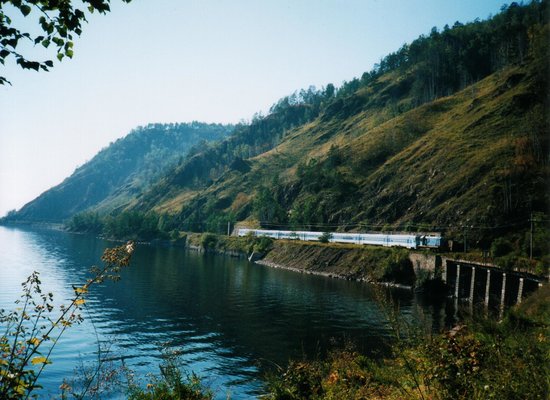Baikal
Lake Baikal (Russian: о́зеро Байка́л Ozero Baykal, pronounced ˈozʲɪrə
bʌjˈkɑl; Buryat: Байгал нуур Baygal nuur, meaning "nature lake") is the
world's oldest and deepest lake at 30 million years old and with an
average depth of 744.4 metres; it is the second most voluminous lake,
after the Caspian Sea. Located in the south of the Russian region of
Siberia, between Irkutsk Oblast to the northwest and the Buryat Republic
to the southeast, it is the most voluminous freshwater lake in the
world, containing roughly 20% of the world's surface fresh water that is
unfrozen. At 1,642 metres (5,387 ft), Lake Baikal is the deepest, and
among the clearest of all lakes in the world. At more than 25 million
years old, Baikal is also the world's oldest lake. Like Lake Tanganyika,
Lake Baikal was formed as an ancient rift valley, having the typical
long crescent shape with a surface area of 31,722 km/12,248 sq mi, less
than that of Lake Superior or Lake Victoria.
Baikal
Baikal
Baikal
Baikal
Baikal
Baikal
Baikal
Baikal
Baikal
Baikal
Baikal









No comments:
Post a Comment